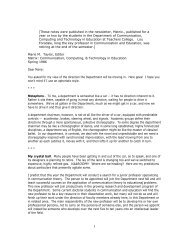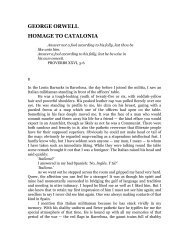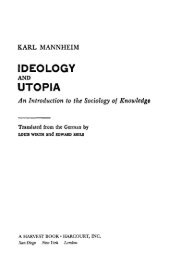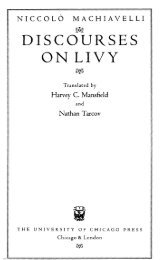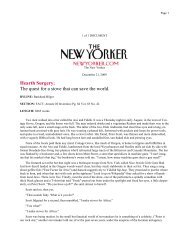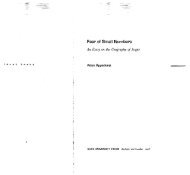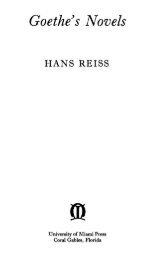THE REPUBLIC OF PLATO - Studyplace
THE REPUBLIC OF PLATO - Studyplace
THE REPUBLIC OF PLATO - Studyplace
You also want an ePaper? Increase the reach of your titles
YUMPU automatically turns print PDFs into web optimized ePapers that Google loves.
44<br />
CHAPTER V [0.359<br />
and the harm to the sufferer outweighs the advantage to the doer.<br />
Consequently, when men have had a taste of both, those who have<br />
not the power to seize the advantage and escape the harm decide<br />
that they would be better off if they made a compact neither to do<br />
wrong nor to suffer it. Hence they began to make laws and covenants<br />
with one another; and whatever the law prescribed they<br />
called lawful and right. That is what right or justice is and how<br />
it came into existence; it stands half-way between the best thing<br />
of all-to do wrong with impunity-and the worst, which is to<br />
suffer wrong without the power to retaliate. So justice is accepted<br />
as a compromise, and valued, not as good in itself, but for lack of<br />
power to do wrong; no man worthy of the name, who had that<br />
power, would ever enter into such a compact with anyone; he<br />
would be mad if he did. That, Socrates, is the nature of justice according<br />
to this account, and such the circumstances in which it<br />
arose.<br />
The next point is that men practise it against the grain, for lack<br />
of power to do wrong. How true that is, we shall best see if we<br />
imagine two men, one just, the other unjust, given full licence to<br />
do whatever they like, and then follow them to observe where each<br />
will be led by his desires. We shall catch the just man taking the<br />
same road as the unjust; he will be moved by self-interest, the end<br />
which it is natural to every creature to pursue as good, until forcibly<br />
turned aside by law and custom to respect the principle of<br />
equality.<br />
Now, the easiest way to give them that complete liberty of action<br />
would be to imagine them possessed of the talisman found by<br />
Gyges, the ancestor of the famous Lydian. The story tells how he<br />
was a shepherd in the King's service. One day there was a great<br />
storm, and the ground where his flock was feeding was rent by an<br />
earthquake. Astonished at the sight, he went down into the chasm<br />
and saw, among other wonders of which the story tells, a brazen<br />
horse, hollow, with windows in its sides. Peering in, he saw a dead<br />
body, which seemed to be of more than human size. It was naked<br />
save for a gold ring, which he took from the finger and made his<br />
way out. When the shepherds met, as they did every month, to<br />
send an account to the King of the state of his flocks, Gyges came



